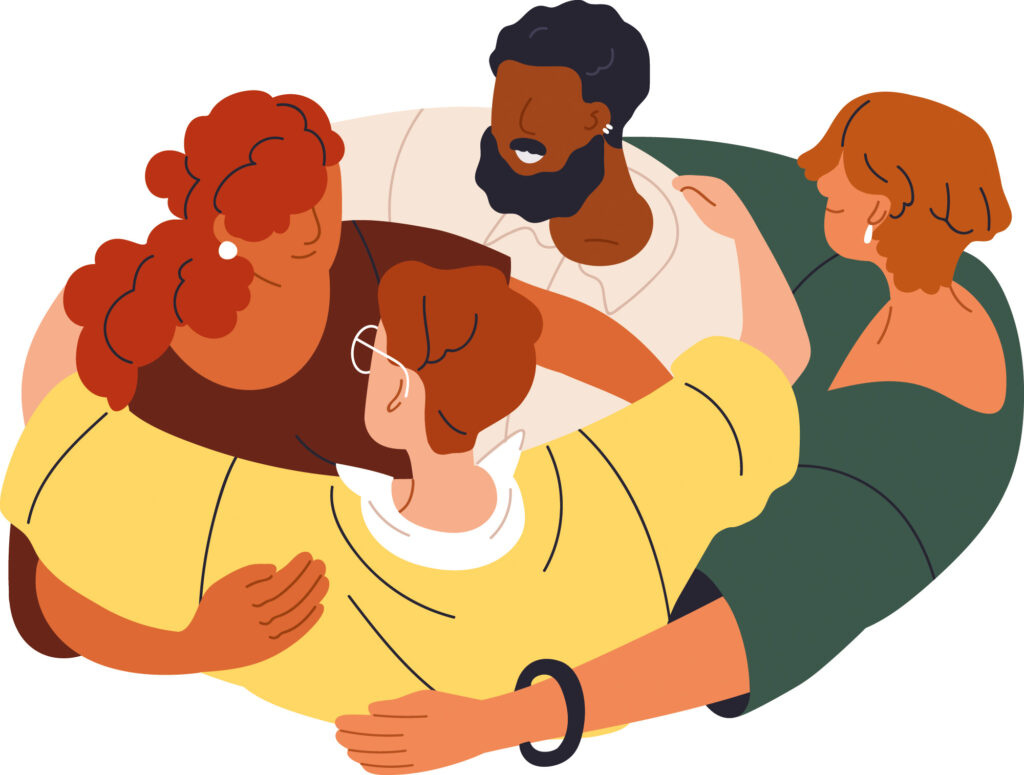Home » Dispensing kindness

Over the last number of years, the role of community pharmacies has evolved beyond simply dispensing prescriptions. Pharmacists and their staff are increasingly recognised as vital components of patient care, contributing not only to medication management but also to the overall wellbeing of their communities. Within the profession there is a constant focus on supporting professional development, best practice, and staying up-to-date with evolving healthcare needs. This focus is often on medicines information and the pharmaceutical needs of the patient. However, often an overlooked aspect are the human needs of the person standing in front of us at the pharmacy counter.
Core to our human experience is the desire to connect with others — to communicate, to belong and to share. A 2016 review of studies in the journal Heart examined 23 studies involving 181,000 adults and concluded that social isolation increased the risk of death by about as much as smoking cigarettes, and more than either physical inactivity or obesity.
When we feel listened to, understood, and cared for we dissolve away stress, anxiety and worry. Our load is lightened, our worries are reduced. Our capacity to heal and repair is boosted. The obvious conclusion is that genuine connection, the opposite of isolation, is health promoting. It follows that central to performing our role as healthcare providers optimally is the ability to connect at a human level, and to do so with kindness, caring and compassion.
There are multiple benefits to approaching our role as pharmacists in this manner. Not only do these softer skills make everyone’s day more pleasant and fulfilling, they also significantly impact patient outcomes, enhance the patient experience, and foster a positive workplace environment.
“By showing genuine interest in patients and their wellbeing, pharmacists can maximise their impact, whether it’s providing medication guidance, optimising medication use, or coordinating with other healthcare providers.”
Warm communication is the most effective way to establish trust between pharmacists and patients. Patients often come to pharmacies with various health concerns, ranging from minor ailments to chronic conditions. Interacting with patients with warmth and empathy reduces their stress, anxiety, and fear, making them feel comfortable and in safe hands. This encourages open communication, enabling pharmacists to perform their role more effectively by facilitating them to gather crucial information about patients’ needs and concerns.
By showing genuine interest in patients and their wellbeing, pharmacists can maximise their impact, whether it’s providing medication guidance, optimising medication use, or coordinating with other healthcare providers. This empathetic approach has been shown to not only improve medication adherence but also to empower patients to take an active role in their health management. Patients who feel cared for are more likely to adhere to their medication regimens and follow lifestyle recommendations
In the enlightening book Compassionomics by Trzeciak and Mazzarelli the suggestion is that compassion matters in not only meaningful ways, but also in measurable ways. Heart attack patients with a lack of emotional support have three times higher odds of death. Research from the University of Chicago shows loneliness predicts a rise in blood pressure, a 29 per cent higher risk of coronary artery disease, and a 32 per cent increase in risk of stroke. A study published in JAMA shows a lack of human connection can increase susceptibility to the common cold, while patients with high compassion physicians had 41 per cent lower odds of serious diabetes complications.
In the current environment where stress and burnout are all too common, not only do your customers and patients benefit, but you too as the provider of that care — compassion and empathy also reap rewards. Compassion is described as a positive sum game, meaning not only is it beneficial for the receiver, but also for the doer. Acts of kindness and connection release oxytocin, our love hormone, and endorphins, our feel-good chemicals, producing a ‘helpers high’, and providing us with an immediate wellbeing boost. Studies show that high compassion is associated with low burnout, and that this effect may be due to an increase in a sense of meaning and purpose for the caregiver. In a rare win-win-win situation, this proactive approach also fosters a sense of loyalty among patients, and so is good for patient, pharmacist, and ultimately, the bottom line.
Of course, kindness and compassion extend beyond patient interactions. They also play a crucial role in creating a supportive workplace culture within the pharmacy. Pharmacists and pharmacy teams often face high-stress situations, from managing impatient customers, and dealing with complex medication inquiries, to an unending level of administrative duties. In such an environment, fostering a culture of kindness can significantly improve job satisfaction and employee morale.
When team members treat each other with compassion, it enhances collaboration and communication. A supportive workplace encourages staff to share ideas, seek help when needed, and gel together as a team working towards a common goal. This positive environment not only reduces burnout but also translates into better patient care. Employees who experience high levels of wellbeing are more engaged and motivated, ultimately leading to improved service quality and patient satisfaction.
In summary, the benefits of prioritising kindness and compassion in a community pharmacy setting are profound and multifaceted, from fostering trust and rapport with patients, enhancing health outcomes, creating a positive work environment, and reducing incidents of burnout. This is not an ‘add on’, but an integral element of the role of the community pharmacist when practiced at its best, with humanity and care. Where your attention, awareness, empathy, and kindness become powerful additions to the medicines you dispense. Best of all, incorporating a compassionate attitude can be implemented with little or no time investment, requiring nothing more than a shift in awareness and intent. For good health, human connection matters, and so the suggestion is that rather than providing the therapy, your awareness and intent become part of the therapy.
Séamus Ruane is a community pharmacist and Positive Psychology Practitioner. He delivers the IPU Professional Academy course ‘Wellbeing in the Pharmacy’, and a new intake for this course will begin in early 2025. See ipu.ie > Professional Academy for more information.
Séamus Ruane

Community Pharmacist and Positive Psychology Practitioner
Highlighted Articles